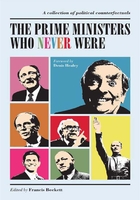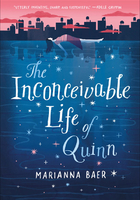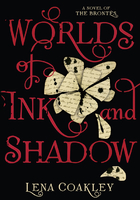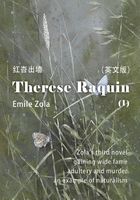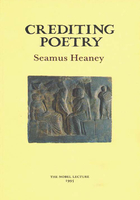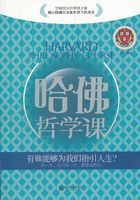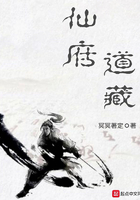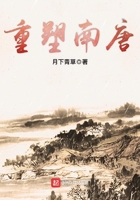As you can doubtless tell, dear friends, my canines are so long and pointed they barely fit into my mouth. I know this gives me a menacing appearance, but it pleases me. Noticing the size of my teeth, a butcher once had the gall to say, "My God, that's no dog at all, it's a wild boar!"
I bit him so hard on the leg that my canines sank right through his fatty flesh to the hardness of his thighbone. For a dog, you see, nothing is as satisfying as sinking his teeth into his miserable enemy in a fit of instinctual wrath. When such an opportunity presents itself, that is, when my victim, who deserves to be bitten, stupidly and unknowingly passes by, my teeth twinge and ache in anticipation, my head spins with longing and without even meaning to, I emit a hair-raising growl.
I'm a dog, and because you humans are less rational beasts than I, you're telling yourselves, "Dogs don't talk." Nevertheless, you seem to believe a story in which corpses speak and characters use words they couldn't possibly know. Dogs do speak, but only to those who know how to listen.
Once upon a time, long, long ago, in a faraway land, a brash cleric from a provincial town arrived at one of the largest mosques in a capital city; all right, let's call it the Bayazid Mosque. It'd be appropriate to withhold his name, so let's refer to him as "Husret Hoja." But why should I cover up anything more: This man was one boneheaded cleric. He made up for the modesty of his intellect with the power of his tongue, God bless it. Each Friday, he so animated his congregation, so moved them to tears that some would cry until they fainted or dried up and withered away. Don't get me wrong, unlike other clerics with the gift of preaching, he himself didn't weep. On the contrary, while everyone else cried, he intensified his oration without a blink as if to chastise the congregation. In all probability, the gardeners, royal pages, halva makers, riffraff and clerics like himself became his lackeys because they enjoyed the tongue lashing. Well, this man was no dog after all, no sir, he was a human being—to be human is to err—and before those enthralled crowds, he lost himself when he saw that intimidating throngs of people was as pleasurable as bringing them to tears. When he understood that there was much more bread to be made in this new venture, he went over the top and had the nerve to say the following:
"The sole reason for rising prices, plague and military defeat lies in our forgetting the Islam of the time of our Glorious Prophet and falling sway to falsehoods. Was the Prophet's birth epic read in memory of the dead back then? Was the fortieth-day ceremony performed, where sweets like halva and fried dough are offered to honor the dead? When Muhammad lived, was the Glorious Koran recited melodically, like a song? Were the prayers called haughtily and pompously to show how close one's Arabic was to an Arab's? Was there such a thing as reciting the call to prayer coyly, with the flourish of a man imitating a woman? Today, people plead before gravesites, begging for amends. They hope for the intervention of the dead on their behalf. They visit the tombs of saints and worship at graves like pagans before pieces of stone. They tie votive pieces of cloth everywhere, and make promises of sacrifice in return for atonement. Were there dervish sectarians who spread such beliefs in Muhammad's time? Ibn Arabi, the intellectual mentor of these sectarians, became a sinner by swearing that the infidel Pharaoh had died a believer. These dervishes, the Mevlevis, the Halvetis, the Kalenderis and those who sing the Koran to musical accompaniment or justify dancing with children and juveniles by saying 'we pray together anyway, why not?' are all kaffirs. Dervish lodges ought to be destroyed, their foundations excavated to a depth of seven ells and the collected earth cast into the sea. Only then might ritual prayers be performed there again."
I heard tell that this Husret Hoja, taking matters even further, declared with spittle flying from his mouth, "Ah, my devoted believers! The drinking of coffee is an absolute sin! Our Glorious Prophet did not partake of coffee because he knew it dulled the intellect, caused ulcers, hernia and sterility; he understood that coffee was nothing but the Devil's ruse. Coffeehouses are places where pleasure-seekers and wealthy gadabouts sit knee-to-knee, involving themselves in all sorts of vulgar behavior; in fact, even before the dervish houses are closed, coffeehouses ought to be banned. Do the poor have enough money to drink coffee? Men frequent these places, become besotted with coffee and lose control of their mental faculties to the point that they actually listen to and believe what dogs and mongrels have to say. But those who curse me and our religion, it is they who are the true mongrels."
With your permission, I'd like to respond to this last comment by the esteemed cleric. Of course, it is common knowledge that hajis, hojas, clerics, and preachers despise us dogs. In my opinion, the whole matter concerns our revered Prophet Muhammad, peace and blessings be upon him, who cut off a piece of his robe upon which a cat lay sleeping rather than wake the beast. By pointing out this affection shown to the cat, which has incidentally been denied to us dogs, and due to our eternal feud with this feline beast, which even the stupidest of men recognizes as an ingrate, people have tried to intimate that the Prophet himself disliked dogs. They're convinced that we'll defile those who have performed ritual ablutions, and the result of this erroneous and slanderous belief is that we've been barred from mosques for centuries and have suffered beatings in their courtyards from broomstick-wielding caretakers.
Allow me to remind you of "The Cave," the most beautiful of the Koran's chapters. I'm reminding you not because I suspect there may be those who never read the Koran among us in this good coffeehouse, but because I want to refresh your memories: This chapter recounts the story of the seven youths who grow tired of living among pagans and take refuge in a cave where they enter a deep sleep. Allah then seals their ears and causes them to doze off for exactly three hundred and nine years. When they awake, they learn just how many years have passed only after one of them enters the society of men and tries to spend an outdated silver coin. All of them are stunned to learn what has happened. This chapter subtly describes man's attachment to Allah, His miracles, the transitory nature of time and the pleasure of deep sleep, and though it's not my place, allow me to remind you of the eighteenth verse, which makes mention of a dog resting at the mouth of this cave where the seven youths have fallen asleep. Obviously, anyone would be proud to appear in the Koran. As a dog, I take pride in this chapter, and through it I intend to bring the Erzurumis, who refer to their enemies as dirty mongrels, to their senses.
So then, what's the actual reason for this animosity toward dogs? Why do you persist in saying that dogs are impure, and cleaning and purifying your homes from top to bottom if a dog happens to enter? Why do you believe that those who touch us spoil their ablutions? If your caftan brushes against our damp fur, why do you insist on washing that caftan seven times like a frenzied woman? Only tinsmiths could be responsible for the slander that a pot licked by a dog must be thrown away or retinned. Or perhaps, yes, cats …
When people left their villages for the sedentary life of the city, shepherd dogs remained in the provinces; that's when rumors of the filthiness of dogs like me began to spread. Yet before the advent of Islam, two of the twelve months of the year were "months of the dog." Now, however, a dog is considered a bad omen. I don't want to burden you with my own problems, my dear friends who have come to hear a story and ponder its moral—to be honest, my anger arises out of the esteemed cleric's attacks upon our coffeehouses.
What would you think if I said that this Husret of Erzurum was of dubious birth? But they've also said of me, "What kind of dog do you think you are? You're attacking the venerable cleric because your master is a picture-hanging storyteller who tells tales at a coffeehouse and you want to protect him. Go on, scat!" God forbid, I'm not denigrating anyone. But I'm a great admirer of our coffeehouses. You know, I have no problem with the fact that my portrait was drawn on such cheap paper or that I'm a four-legged beast, but I do regret that I can't sit down like a man and have a cup of coffee with you. We'd die for our coffee and our coffeehouses—what's this? See, my master is pouring coffee for me from a small coffeepot. A picture can't drink coffee, you say? Please! See for yourselves, this dog is happily lapping away.
Ah, yes, that hit the spot, it's warmed me up, sharpened my sight and quickened my thoughts. Now listen to what I have to tell you: Besides bolts of Chinese silks and Chinese pottery adorned with blue flowers, what did the Venetian Doge send to Nurhayat Sultan, the esteemed daughter of our respected Sultan? A soft and cuddly Venetian she-dog with a coat of silk and sable. I heard that this bitch is so spoiled she has a red silk dress as well. One of our friends actually fucked her, that's how I know, and she can't even engage in the act without her dress. In that Frankish land of hers, all dogs wear outfits like that anyway. I've heard tell that over there a so-called elegant and well-bred Venetian woman saw a naked dog—or maybe she saw its thing, I'm not sure—anyway, she screamed, "My dear God, the dog is naked!" and fainted dead away.
In the lands of the infidel Franks, the so-called Europeans, every dog has an owner. These poor animals are paraded on the streets with chains around their necks, they're fettered like the most miserable of slaves and dragged around in isolation. These Franks force the poor beasts into their homes and even into their beds. Dogs aren't permitted to walk with one another, let alone sniff and frolic together. In that despicable state, in chains, they can do nothing but gaze forlornly at each other from a distance when they pass on the street. Dogs who roam the streets of Istanbul freely in packs and communities, the way we do, dogs who threaten people if necessary, who can curl up in a warm corner or stretch out in the shade and sleep peacefully, and who can shit wherever they want and bite whomever they want, such dogs are beyond the infidels' conception. It's not that I haven't thought that this might be why the followers of the Erzurumi oppose praying for dogs and feeding them meat on the streets of Istanbul in exchange for divine favors and even why they oppose the establishment of charities that perform such services. If they intend both to treat us as enemies and make infidels of us, let me remind them that being an enemy to dogs and being an infidel are one and the same. At the, I hope, not too distant executions of these disgraceful men, I pray our executioner friends invite us to take a bite, as they sometimes do to set a deterring example.
Before I finish, let me say this: My previous master was a very just man. When we set out at night to thieve, we'd cooperate: I'd begin to bark, and he'd cut the throat of our victim whose screams would be drowned out by my barking. In return for my help, he'd cut up the guilty men that he'd punished, boil them and feed them to me. I don't like raw meat. God willing, the would-be executioner of that cleric from Erzurum will take this into account so I won't upset my stomach with that scoundrel's raw flesh.

